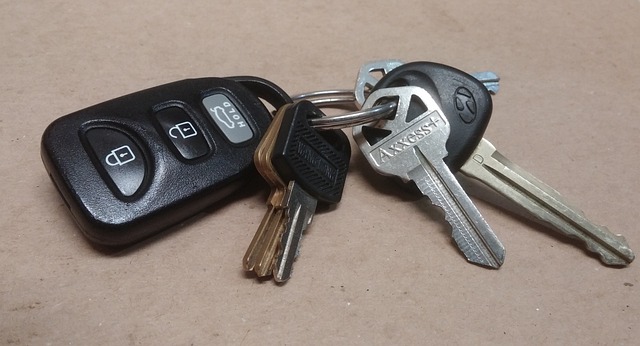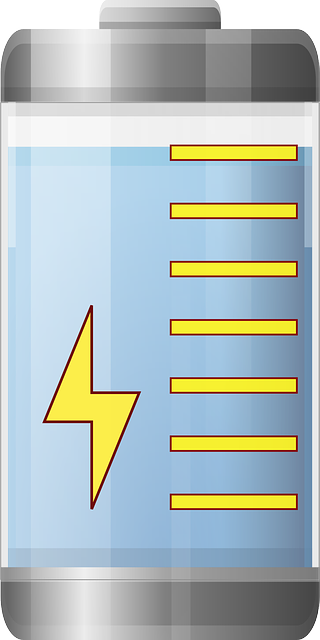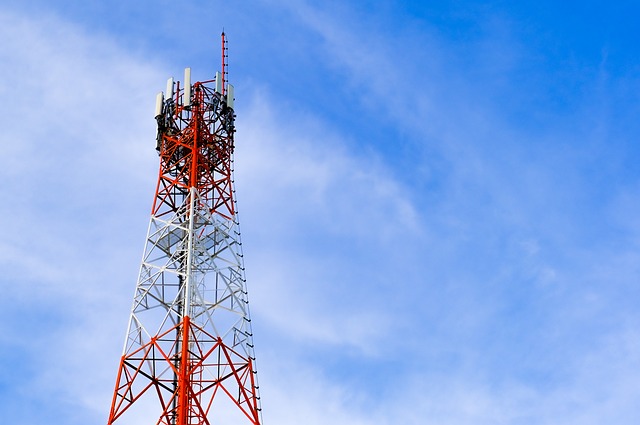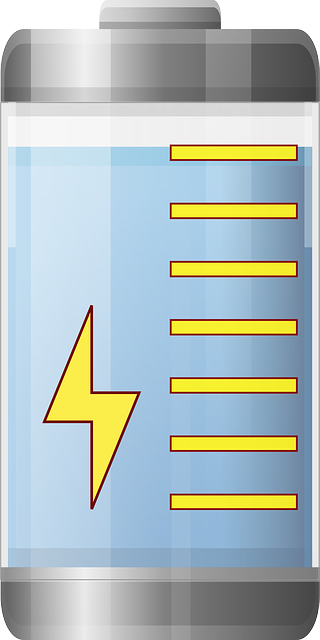2023 has marked a significant shift towards sustainability in educational settings, particularly with the increasing prevalence of button batteries due to higher electronics usage. Schools worldwide are now leading the charge on recycling these batteries through innovative programs that not only manage waste but also educate students on environmental stewardship as part of their curriculum. These initiatives emphasize the importance of responsible consumption and its ecological consequences, while tackling safety concerns during battery collection and processing. By focusing on scalable solutions and raising awareness about the dangers of improper disposal, schools are at the forefront of developing new technologies to recycle button batteries, contributing to a greener environment and promoting circular economy principles. These efforts underscore the critical role schools play in setting an example for future generations to follow in fostering sustainable practices.
10 Best Button Battery Recycling Initiatives for Schools harness sustainable practices and education to address the environmental impact of these small but potent energy sources. This article explores innovative school-based programs that lead the charge in safe disposal, community engagement, and STEM learning opportunities. From educational programs fostering awareness to partnerships with local businesses ensuring financial support, discover how schools are effectively recycling button batteries through grants, technology, and interactive activities. Each initiative paves the way for a greener future, tackling the challenges of waste management while preparing students to be conscientious stewards of the environment.
- Empowering Students with Safe Disposal: The Top 10 Button Battery Recycling Initiatives for Schools
- Button Battery Safety and Awareness: Educational Programs Integrated into School Recycling Initiatives
- Innovative Partnerships: How Local Businesses Support School-Based Button Battery Recycling Efforts
- Grants and Funding for School Button Battery Recycling Programs: A Guide to Financial Support
- The Role of Technology in Tracking and Managing Button Battery Recycling in Schools
- Interactive Learning with Button Batteries: Incorporating STEM Activities into Recycling Initiatives
- Community Engagement: Fostering Button Battery Recycling through Student-Led Campaigns and Events
- The Future of Button Battery Recycling in Schools: Trends, Challenges, and Opportunities Ahead
Empowering Students with Safe Disposal: The Top 10 Button Battery Recycling Initiatives for Schools

Schools play a pivotal role in instilling environmental stewardship and responsible waste management practices among students. Recognizing the hazards posed by button batteries, which can cause serious harm if ingested or improperly disposed of, many educational institutions have implemented innovative recycling initiatives. These programs not only ensure the safe disposal of these small but potent cells but also serve as practical learning tools for students. The top 10 button battery recycling initiatives for schools prioritize safety, education, and sustainability, providing clear guidelines on proper collection methods, storage solutions, and the importance of partnering with certified recycling facilities. By participating in these initiatives, schools can empower their students to become conscious citizens who contribute positively to environmental health through responsible handling of electronic waste, particularly button batteries found in everyday devices like remote controls, watches, and hearing aids.
Moreover, these initiatives often come with educational materials that explain the environmental and health impacts of improper disposal, thereby reinforcing the knowledge students gain from practical experiences. They also involve engaging activities that simulate the life cycle of battery disposal, from collection to recycling, thus providing hands-on opportunities for learning. The collaboration between schools, students, and recycling centers not only ensures the safe handling of these batteries but also fosters a sense of community responsibility and global environmental awareness among the youth. Through these initiatives, schools can make significant strides in promoting eco-friendly practices that have a lasting positive impact on the environment.
Button Battery Safety and Awareness: Educational Programs Integrated into School Recycling Initiatives

Button batteries, small but potent cells that power an array of everyday devices from hearing aids to remote controls, present unique safety and environmental challenges. To address these concerns, educational programs have been seamlessly integrated into school recycling initiatives, fostering awareness and safe disposal practices among students. These programs not only highlight the potential hazards associated with button batteries, such as the risk of chemical burns if swallowed, but also emphasize their adverse impact on the environment when improperly disposed of. By incorporating button battery safety into the curriculum, schools empower students to become advocates for responsible waste management and environmental conservation. Students learn to recognize these batteries in products, understand the importance of proper disposal through recycling programs, and are encouraged to spread awareness within their communities. This dual focus on safety and environment stewardship equips young individuals with knowledge that extends beyond the classroom, instilling lifelong habits of caution and care towards the handling and disposal of button batteries.
The integration of button battery safety education into school recycling initiatives serves a dual purpose: safeguarding public health and promoting environmental sustainability. By providing clear guidelines on the safe use, storage, and disposal of button batteries, schools play a pivotal role in preventing potential accidents involving these powerful cells. Meanwhile, the inclusion of battery collection and recycling efforts within the school’s waste management strategy contributes to reducing the ecological footprint of electronic waste. These initiatives not only foster responsible behavior among students but also lay the groundwork for future generations to adopt sustainable practices, ensuring that the conversation on button battery safety and recycling continues well beyond the confines of the educational system.
Innovative Partnerships: How Local Businesses Support School-Based Button Battery Recycling Efforts

Schools across the nation are increasingly engaging in recycling initiatives, with a particular focus on the responsible disposal and recycling of button batteries. A key element driving the success of these programs is the establishment of innovative partnerships with local businesses. These collaborations not only amplify awareness about the importance of proper button battery disposal but also provide practical support for the collection and processing of these small yet hazardous items.
Local businesses, recognizing the environmental impact of improperly discarded button batteries, have stepped up to support school-based recycling efforts. By sponsoring recycling bins, offering educational materials, or even providing funds to cover the costs associated with recycling programs, these businesses play a pivotal role in this sustainability endeavor. For instance, electronic stores and battery manufacturers often supply schools with collection units specifically designed for button batteries, ensuring that students, teachers, and staff have accessible points to recycle these batteries safely. These partnerships also extend educational opportunities, as businesses may conduct workshops or presentations to inform the school community about the dangers of irresponsible disposal and the benefits of recycling. This collective effort not only fosters environmental stewardship among young learners but also strengthens community ties and local economies through these mutually beneficial partnerships.
Grants and Funding for School Button Battery Recycling Programs: A Guide to Financial Support

Schools looking to implement or expand their button battery recycling initiatives can benefit from various grants and funding opportunities that support environmental sustainability and education. These financial resources are instrumental in facilitating programs that not only recycle button batteries responsibly but also raise awareness about the importance of proper disposal and the impact of these batteries on the environment. Many governmental agencies, non-profit organizations, and corporations offer such grants, often with a focus on innovation, education, and community engagement. It’s advisable for schools to research and apply for these funding sources as they can provide the necessary support to launch or enhance recycling programs effectively.
Funding avenues for button battery recycling in schools are diverse, catering to different scales of operations and initiatives. These grants not only cover the operational costs associated with collection, sorting, and transporting used batteries but also extend to educational materials and workshops that inform students and staff about the environmental implications of battery disposal. By securing these financial backing options, schools can create comprehensive recycling programs that contribute to a cleaner environment while fostering a culture of sustainability within their campus community. It’s crucial for educators and administrators to explore these opportunities, as they are pivotal in transforming the initiative from an idea into an impactful, community-focused project.
The Role of Technology in Tracking and Managing Button Battery Recycling in Schools

In the realm of sustainable practices, technology plays a pivotal role in the tracking and management of button battery recycling within educational institutions. Schools are increasingly adopting software solutions that integrate barcode scanning or RFID tagging systems to monitor the collection and disposal of these small but significant batteries. These technologies enable precise inventory management, ensuring that every button cell is accounted for from the moment it’s removed from a device until it reaches the recycling facility. The data collected by such systems allows schools to optimize their recycling programs, identifying peak usage times and predicting future needs. This data-driven approach not only enhances the efficiency of the recycling process but also promotes responsible disposal habits among students and staff, fostering a culture of environmental stewardship in schools.
Furthermore, technology facilitates the communication between schools, battery manufacturers, and recycling centers. This interconnectedness ensures a streamlined recycling loop, where information about the volume and type of button batteries being used can be shared, leading to more sustainable production practices. Additionally, digital platforms can educate users on the environmental impact of improper disposal and the importance of recycling these batteries, thereby raising awareness and promoting responsible behavior within the school community. The integration of technology in managing button battery recycling is not only a testament to the ingenuity of modern solutions but also an essential step towards a more sustainable future for our schools and the broader environment.
Interactive Learning with Button Batteries: Incorporating STEM Activities into Recycling Initiatives

Incorporating STEM activities into recycling initiatives can significantly enhance students’ learning experiences, particularly when it comes to handling button batteries responsibly. An interactive approach to educate children about the importance of battery recycling can be achieved through hands-on experiments and projects that highlight the role of button batteries in everyday devices. For instance, a simple yet engaging project involves disassembling electronic gadgets, safely collecting the used button batteries, and then examining their chemical composition with simple tools like a magnifying glass or a basic microscope. This not only teaches students about battery chemistry but also fosters a deeper understanding of electronics and the environmental impact of improper disposal. Furthermore, these activities can be expanded to include discussions on sustainable energy sources and the lifecycle of batteries, thus intertwining science, technology, engineering, and mathematics (STEM) with environmental stewardship. By engaging students in button battery recycling through STEM-based learning, schools can create a multidimensional educational experience that emphasizes both practical skills and environmental consciousness.
To effectively implement such initiatives, schools can partner with local recycling centers or manufacturers who provide button batteries to gain insights into safe disposal methods and the science behind their function. This collaboration not only educates students but also contributes to the community’s broader recycling efforts. By integrating these STEM activities into the curriculum, schools can demonstrate the tangible impact of individual actions on environmental conservation, making the learning experience both meaningful and memorable for young minds.
Community Engagement: Fostering Button Battery Recycling through Student-Led Campaigns and Events

Participating in button battery recycling initiatives is an impactful way for schools to engage with their communities and instill environmental stewardship among students. Student-led campaigns can serve as a cornerstone for fostering community involvement, where pupils take the lead in organizing collection drives, educational workshops, and awareness events. These initiatives not only provide hands-on experience in sustainability practices but also raise awareness about the importance of properly disposing of these small yet hazardous batteries. By partnering with local recycling programs, schools can offer convenient drop-off points for button batteries, thus facilitating a streamlined recycling process. Such campaigns can be tailored to include interactive learning modules that explain the environmental impact of improperly disposed button batteries and their potential health risks. Through these efforts, students become advocates for change, influencing their peers, families, and community members to participate in responsible recycling behaviors, thereby contributing to a safer environment.
Furthermore, schools can amplify the reach of their recycling campaigns by leveraging social media, creating informative materials, and hosting public events that highlight the importance of button battery recycling. These events can feature interactive displays, guest speakers from environmental organizations, and live demonstrations of how recycled batteries are processed and repurposed. By actively engaging with their communities, schools can set a precedent for future generations, fostering a culture where environmental responsibility is both a communal effort and an individual commitment. The collective action taken by students and supported by schools plays a pivotal role in promoting sustainable practices and protecting the health of our planet.
The Future of Button Battery Recycling in Schools: Trends, Challenges, and Opportunities Ahead

2023 has marked a pivotal point in the journey towards sustainable practices within educational institutions, particularly with the increasing focus on button battery recycling initiatives. The proliferation of electronic devices in classrooms has led to a significant rise in the generation of button batteries, which pose environmental risks if improperly disposed of. As schools across the globe grapple with managing these small but potent pieces of technology, innovative recycling programs are emerging as a beacon of hope. These initiatives not only address the immediate challenge of waste management but also serve as an educational tool to foster environmental stewardship among young learners. The trend towards integrating recycling into school curricula is gaining momentum, emphasizing the importance of responsible consumption and the impact of individual actions on the larger ecosystem.
The future of button battery recycling in schools promises a landscape rich with challenges and opportunities. One of the primary challenges lies in the development of scalable recycling programs that can be adapted to various educational settings globally. These programs must navigate the logistical complexities of collection, sorting, and processing, all while ensuring the safety of students and staff. Additionally, there is a pressing need for increased awareness and education on the hazards associated with button batteries, as well as the importance of recycling them. On the flip side, opportunities abound for schools to take the lead in pioneering new technologies and methods for recycling these batteries. The potential for repurposing materials recovered from recycling can significantly reduce the environmental footprint of electronic waste, paving the way for a circular economy within educational institutions. As such, the role of schools in advancing button battery recycling is not only crucial for their immediate surroundings but also sets a precedent for future generations to follow.
schools play a pivotal role in fostering environmental stewardship among young learners. The initiatives highlighted in this article demonstrate the transformative power of education and community collaboration in addressing the issue of button battery waste. From empowering students with knowledge on safe disposal to forging innovative partnerships, each program showcases a commitment to sustainability and safety. With grants and funding accessible to support these efforts, coupled with the integration of technology for effective tracking and management, schools are well-equipped to lead the charge in recycling button batteries responsibly. As we look to the future, it is clear that the trends and challenges in button battery recycling present numerous opportunities for growth and innovation. Schools that implement these initiatives not only contribute to a safer environment but also provide their students with practical STEM experiences, ensuring a holistic approach to learning and global citizenship. The top 10 button battery recycling initiatives for schools stand as a testament to the potential for positive change when communities come together for a common cause.



